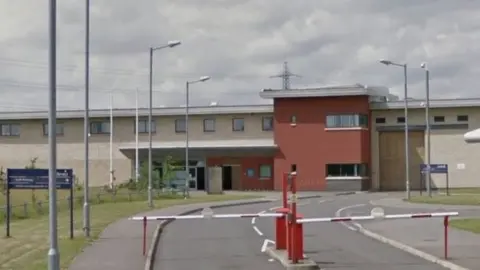Freed Bronzefield prisoners 'do not have safe accommodation', report finds
 Google
GoogleThe majority of inmates released from Europe's largest female prison do not have safe and long-term accommodation to go to, an inspection has found.
A report by HM Inspectorate of Prisons said 65% of inmates released from HMP Bronzefield, in Surrey, did not have "sustainable" accommodation.
This was "undoing the good work" of jail, the report said.
It found some women were reluctant to leave prison, preferring it to "uncertainties of freedom".
Sustainable accommodation is classed as a place to stay for 12 or more weeks.
The report said staffing cuts had created weakness in release planning and the jail struggled to recruit and retain staff.
Charlie Taylor, Chief Inspector of Prisons, said: "Without stable, safe accommodation many women are liable to have mental health relapses, return to substance misuse and become involved in crime on release, creating more victims and, at great cost to the taxpayer, repeating the cycle and undoing the good work of the prison."
Bronzefield was described as "a well-run prison with a strong, experienced director and leadership team who are committed to improving outcomes for women".
'Safety concerns'
But, the leader of the inspection, Sandra Fieldhouse, said that issues at Bronzefield were all too common in women's prisons.
She said: "Women often tell us that they turn down some options because of safety concerns - such as a hostel shared with men.
"Some women have suffered a history of domestic violence and are left with an impossible choice between returning to live with an abusive partner or sleeping on the streets."
Progress has been made since Bronzefield was criticised by the prisons watchdog last year after a newborn baby died when the 18-year-old mother gave birth alone in her cell, despite calling staff for help.
A Ministry of Justice spokesperson said: "We are preventing homelessness by providing temporary accommodation to prison leavers without a home to go to as part of our £550 million plans to cut crime and we've already seen the rate of prisoners homeless on release fall by 28%."
They added the number of women going to prison in the first place has "fallen by a third since 2018 as part of our efforts to divert vulnerable women into community services, drug rehabilitation and women's centres".

Follow BBC South East on Facebook, on Twitter, and on Instagram. Send your story ideas to [email protected].
